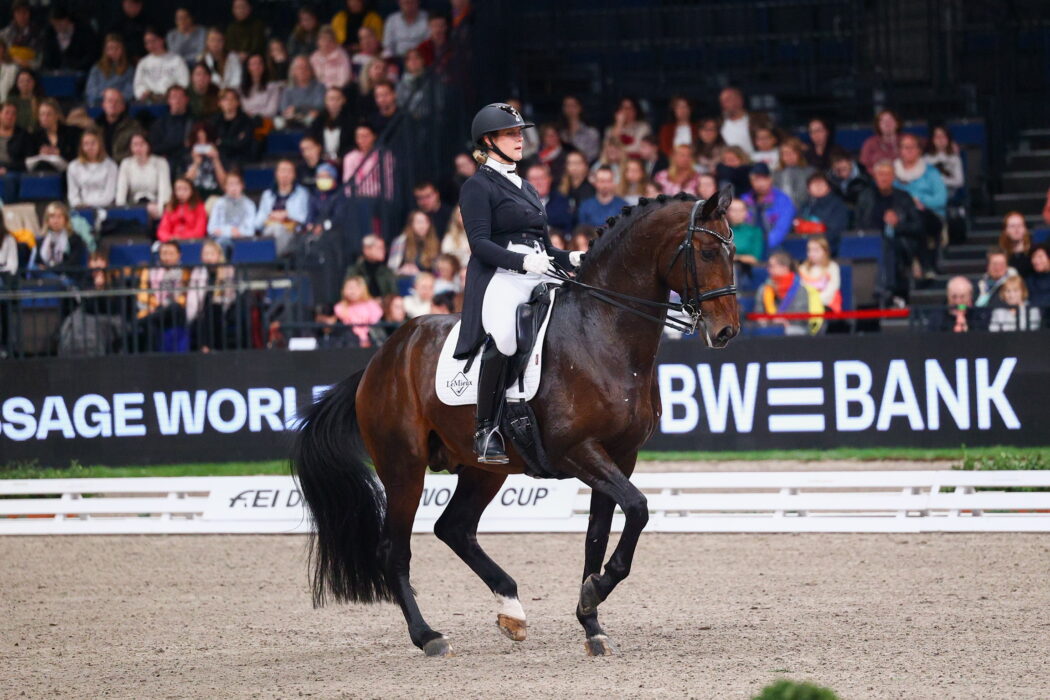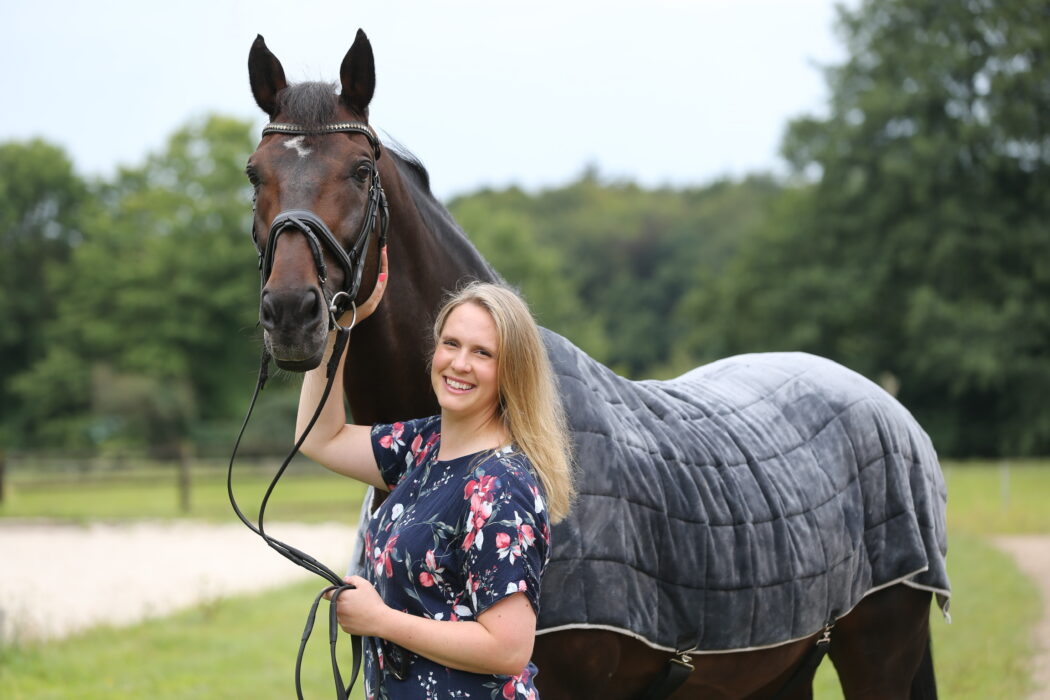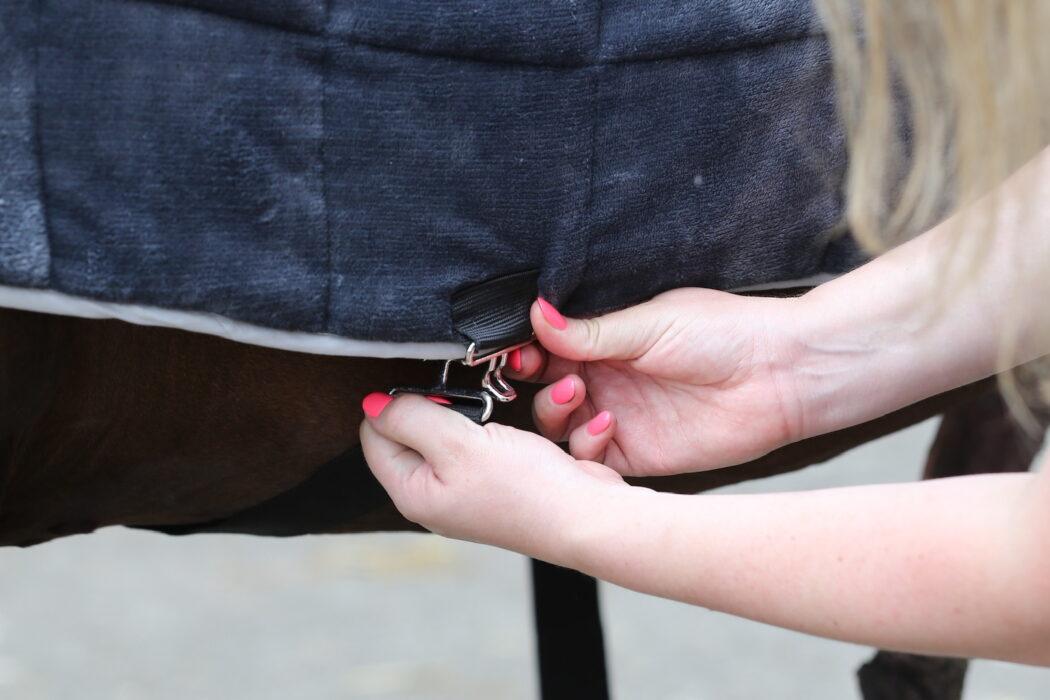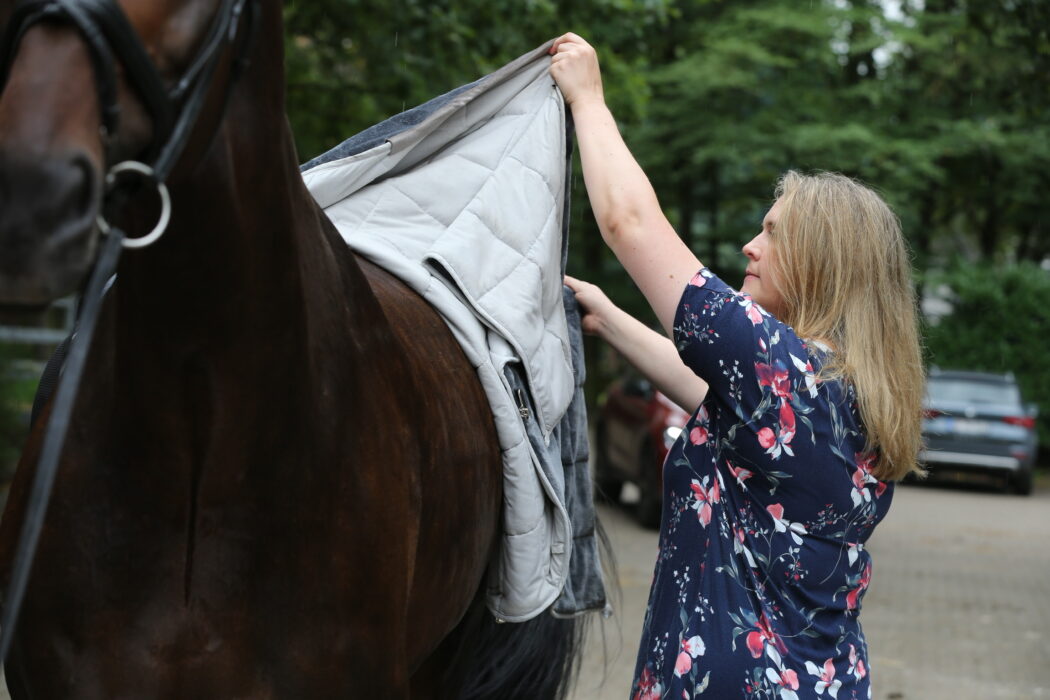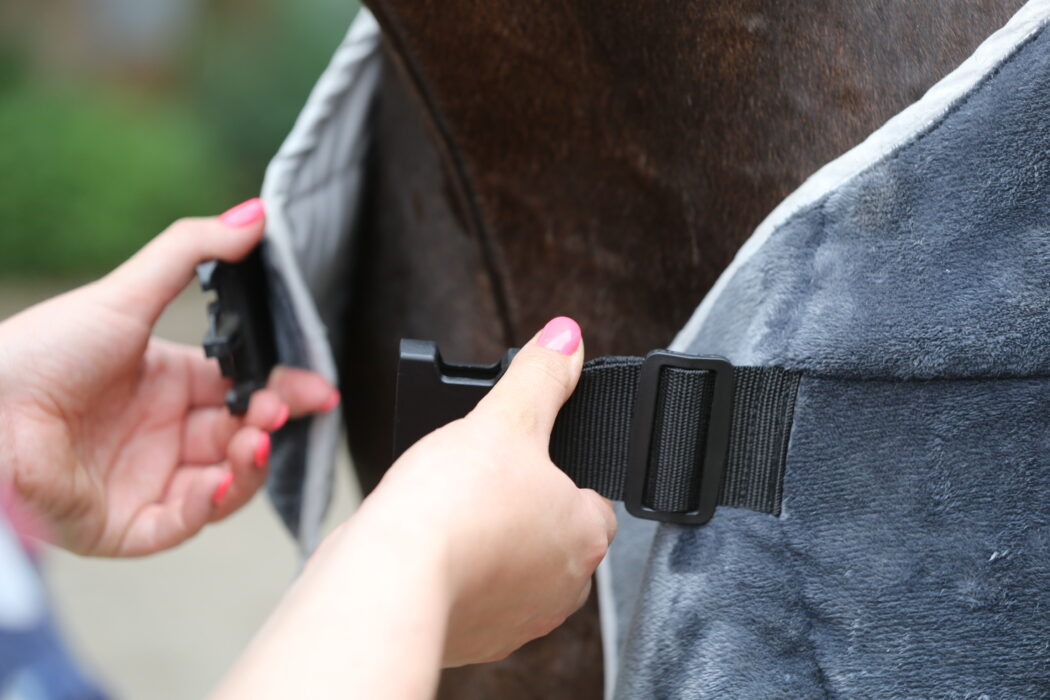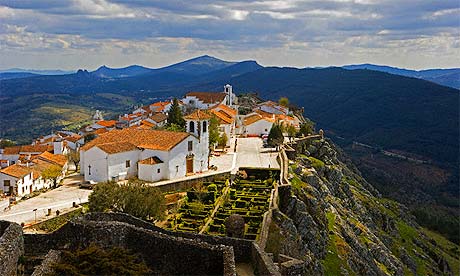The world of dressage is uber-competitive. Constant sacrifices are made to get the best possible results. But at what cost? We sat down to speak with Gretha Hausmann-Ferreira, Olympic Grand Prix dressage rider and Gabriele Metz, special interest journalist and manager of the Hund & Pferd Dortmund at Hofgut Sachtenhorst, to hear why they preach and – of course – practice the concept of Natural Horsemanship.
The concept of Natural Horsemanship embraces the ancient principles of riding, integrating a holistic perspective on how horse and rider should work together in synergy to get the best possible results for both. The concept challenges the world of professional and leisure riders with a unique perspective on the training and treatment of horses.
READ THE FEATURE IN THE CILLIAN MURPHY EDITION HERE
You were only 3.5 years old when you started riding. What do you still remember about that moment?
(Gretha) The story goes that Mum used to take us to the library. I used to always run to whatever equestrian book I could find. After this happened for a few weeks, she decided to take me to a riding school. I still remember the first horse I rode – I was not scared and I wanted to get on the biggest horse immediately. When the trainer took out a pony I said: “No, I want to go on the big horse.” So that happened, and there is even a photo of me sitting on this big horse for the first time. After that, it grew into something I just couldn’t be without anymore.
(Gabriele) I started to ride at the age of six. Even as a child, horses were always on my mind. I found a place locally where a herd of wild ponies lived, and when I learned to ride it was without a saddle – it was all about having fun with the ponies. I even remember being in our bathing suits and swimming with them.
At what point did you start to compete and get more serious about the sport?
(Gretha) When I was about 10 years old my trainer said that I was clearly talented. She advised us to look for a riding school that offered the possibility of competing at a high level.
So, I moved there. After a while, they told my parents to really think about getting me a pony. I was blessed to have my mum and dad support me in this. They said: “If this is what you really want to do, we will do our very best to support you and get you the pony that you need to compete.” That happened when I was 13 years old. From there, it just exploded.

Despite ascending to an Olympic level of skill, Gretha seems to describe her early years of riding as an evolving hobby. Was there the ambition from a young age to actually compete as an Olympic dressage rider? When did it become clear to you that you could also make a career out of this?
In 2005 I was selected to go to the youth Olympic games in Sydney together with another South African competitor. When we arrived in Sydney, despite dressage in Australia not being as big as in Europe, we noticed it was much bigger than in South Africa. That opened my eyes and made me realise that this sport is something that really means something. It is not a small thing.
In terms of getting results, it was a hard competition for a novice. There was no support from the South African government. That resulted in us loaning a horse in Sydney because we couldn’t bring our own – we only had a week to get to know this pony, and then we had to compete. All in all I was not really successful there, but in general it was an experience that I will never forget. It took me getting to the youth Olympic games to decide: this is what I want to do with my life.
There must be a myriad of best practices when it comes to horse and pony care at that level. What is an important principle for you when it comes to training your horse?
(Gretha) I want to train my horses in a kind way – in a way that they can truly understand what I’m teaching them, instead of forcing them to do these movements. Therefore, it is no surprise that I’ve had many influential people on my team throughout my career that focus on Natural Horsemanship.
What is it that Natural Horsemanship has to offer to the sport?
(Gretha) If you truly understand horses and how their brains work you approach them differently. There is an unfortunate lack of knowledge in the sport. This means people aren’t properly able to teach horses something without having to force them. The reality is that horses don’t have to do anything we ask them. They are not going to go into the arena and do ‘Piaffe’ and ‘Passage’ for themselves.
The dream scenario I envision would involve much more teaching regarding how a horse’s neurology works. If we can teach more people to understand what horses try to tell us, our lives and their lives get much easier.
Whilst we’re sure many dream of placing at the Olympics, what does Natural Horsemanship have to offer the leisure rider?
(Gabriele) For me it is a passion for horses that counts. I am a leisure rider too, but at a high level. When you’re riding the horse the wrong way you can damage their health, and as such, it is essential to know the biomechanics of a horse and how you should train your horse.

Gabriele, what put you on the path of Natural Horsemanship?
At the time I was writing a book with Robert Stodulka on approaches to the academic art of riding. They practise a program that learns from the teachings of the old riding masters of the 18th century. They are not interested in winning competitions like Gretha does; they try to present the horse in the most spectacular and healthy way possible. For me, that is the most interesting aspect to focus on.
How would Natural Horsemanship change the sport as it stands today?
(Gretha) Most importantly, I think the essence of what dressage truly represents would become more visible: that the horse and the rider move together in harmony. That is unfortunately an approach that is lacking rather often these days. It gets to a point where you can sometimes see that the horse is being unduly forced and doesn’t want to compete.
Gretha, can you give us an example of a moment where you experienced the essence of dressage, and explain the concept of Natural Horsemanship altogether?
That would definitely be at the world championship last year. In dressage, all Grand Prix movements are marked out of ten, and for any rider to break the coveted 70% mark is a huge milestone. It happened for me with my horse Zidane – I was in this big stadium in Denmark packed with thousands of people. My test was, well, I won’t say it was flawless, but it was the one where I felt a sense of harmony and communication with my horse like never before. I came out and they gave me a mark of 70%. It brought me to tears.
It might not have been a mark that would have secured a medal but for me, it’s about improving your personal best. It was the most incredible day. For me, that was my gold medal.
I think we have to get more in that mindset about the sport. The focus should be on you and your horse as a partnership, and improving your own personal best instead of being the winner. Otherwise, I don’t see how things can change.

Gabriele, being a journalist you have unfettered access to the equine industry. How do you approach and influence change in the industry?
It has always been clear what I stand for. I’ve always had a natural feeling for right and wrong with regard to the treatment of horses and animals. I decided not to give coverage in articles when I knew that things were happening that were just not right, or that didn’t align with a conscientious approach. The people that I like to promote are like-minded, such as Gretha. I want to inspire the field with good examples and show how happy we and the horses truly are.
What’s stopping the industry from changing?
(Gretha) I understand for some people that I am in a privileged position to have two horses in the first place. Some people have sponsored horses that need to show results for the sponsors, but from that perspective I would say it is the owner’s responsibility to not put that pressure on the rider, or make them feel like he or she needs to ride the horses to an extreme point to get results.
What positive trends can you point out for us that have to do with Natural Horsemanship?
(Gabriele) I think we should go back to a simple and natural approach. This is progressing. Nowadays people are becoming more conscious about how they treat their horses. This is also reflected in the products people are using.

What do the both of you find important when it comes to horse care products?
(Gretha) For me, it is about ensuring the horse is comfortable in its own skin.
(Gabriele) The products from ShieldOn are all examples of those that are designed with the comfort of the horse in mind. My stallion doesn’t usually like his head to be treated with fly protection spray, and with most aerosol sprays he becomes nervous from the noise they make. The spray from ShieldOn comes out like a fog and is silent, so I can get really close to the head of my horse and he loves it.
(Gretha) ShieldOn provided us with the RELAXAH (short for: relax a horse) blanket. It is an 11 kilo blanket. It has such an immediate impact! I think if we could put ourselves in their bodies, it would feel like ants crawling all over them when the adrenaline and testosterone runs through their blood. This is when you put the blanket on. This blanket just brings the whole nervous system down immediately.
Gretha, who inspired you most on your journey?
The person who’s inspired me the most is my mother. Even though she has not ridden at my level, her determination and pure drive to make things a success in life has really been my biggest inspiration and motivation.
What is your greatest dream when it comes to your career?
My ultimate dream would be to be in the top 50 international riders in the world. If it’s God’s will and I continue working the way I do, I hope it happens.

